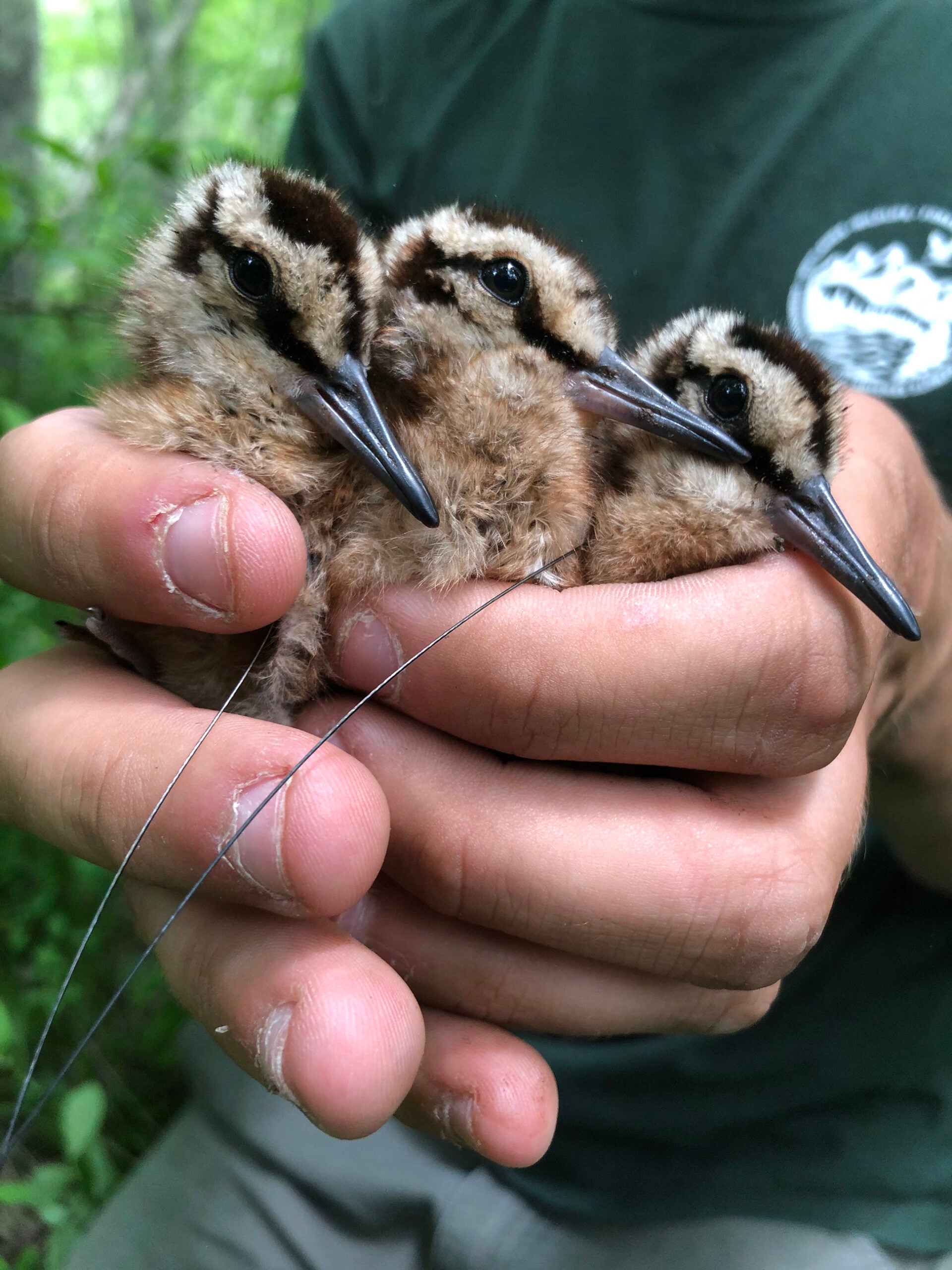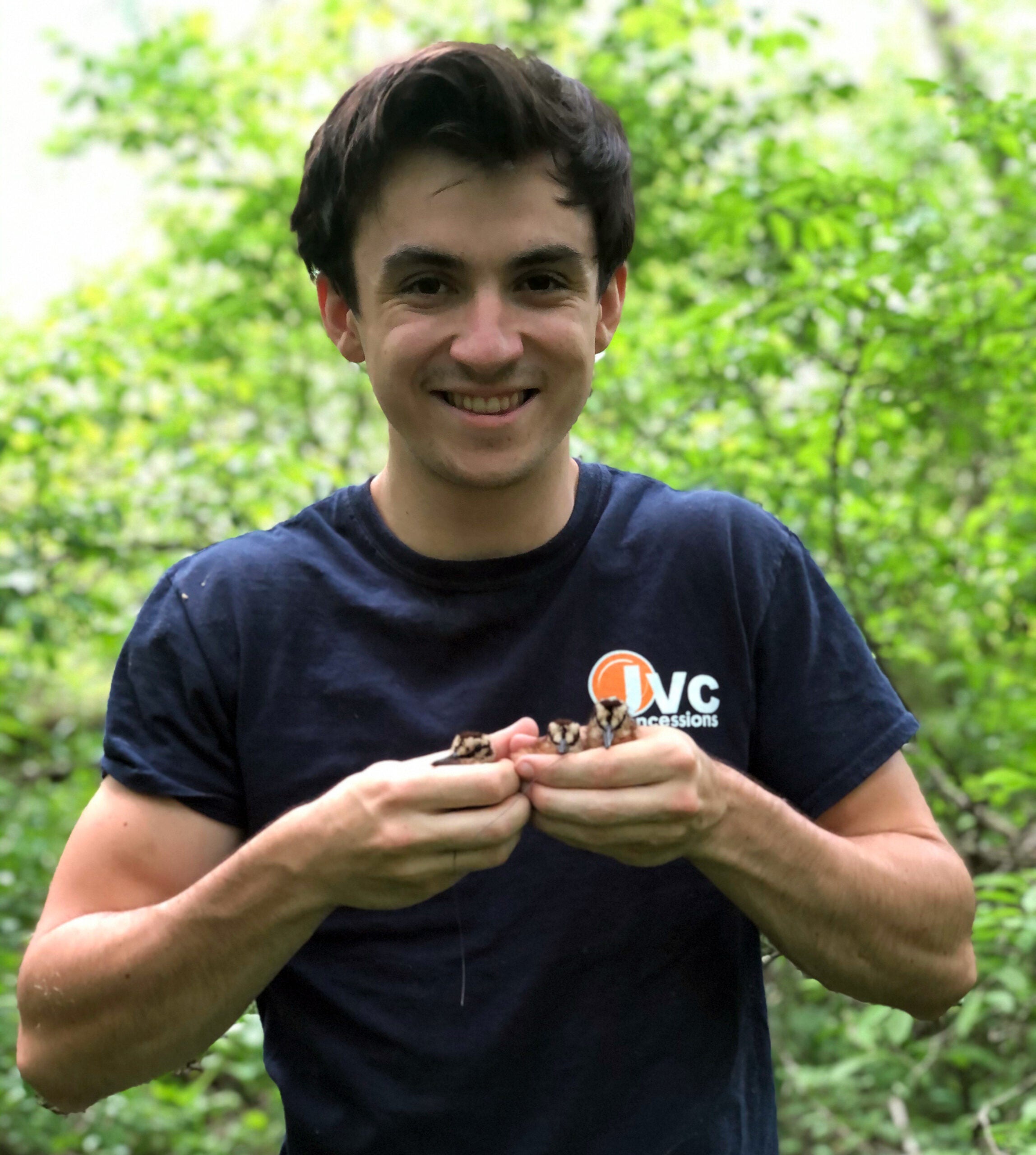KINGSTON, R.I. – October 22, 2020 – Justin Moore has always had a keen interest in working with wildlife, and this year he got his first chance. The University of Rhode Island senior spent the last six months conducting field studies of one of the Ocean State’s most unusual birds, the American woodcock, which is sometimes called the timberdoodle.
The softball-sized bird with a long flexible beak does what Moore calls a “wobble dance” by rocking back and forth from one foot to another, a behavior that scientists can’t quite explain.
“I saw them do it just once, and it’s pretty cool,” said Moore, a resident of Middletown, Rhode Island, who is majoring in wildlife and conservation biology. “It might be a feeding behavior to stir up the soil to see if there are worms around.”
Working with URI graduate student Colby Slezak, Moore spent most of his time since last spring capturing and tracking the movements of nesting woodcock in Arcadia Wildlife Management Area in Exeter to document their home range, activity patterns, distribution in the area, and habitat preferences. Each day he used radio telemetry to home in on birds that had been previously tagged with a tracking device that could be detected with a special antenna.

“We’d usually get a weak signal from the road, so we’d walk in to locate them and make sure they were still alive,” he said. “They’re really well camouflaged, so sometimes we’d get within 10 feet of them before they startled us by flying off.”
Moore learned that the birds, whose populations have been declining since the 1960s, prefer young forests and shrubby areas with moist soils.
“Once they find a location they like, they don’t move around a lot,” Moore said. “It’s a protection strategy – the area is good for feeding and they don’t have to worry about predators. And if we ever did find that they moved somewhere else, they always found their way back to their original location.”
The URI student said his favorite part of his experience was exploring different parts of Rhode Island, discovering other species of wildlife, and spending time outdoors.
Moore’s research is supported by the URI Coastal Fellows Program, a unique initiative designed to involve undergraduate students in addressing current environmental problems. Now in its 24th year, the program pairs students with a mentor and research staff to help them gain skills relevant to their academic major and future occupations.
“I really appreciated the program because I came in with no prior research experience and I learned to do so many things – mist netting to capture the birds, radio telemetry to track them, how to handle birds, and so much more,” Moore said. “It was my favorite job I ever had. I got a lot out of it.”
He hopes to gain additional experience in the coming year, perhaps with mammals or reptiles, in hopes of getting some seasonal field research jobs upon graduation next year. He will likely earn a graduate degree eventually as well.
“Down the road, I might continue on to get my Ph.D. and continue to do research,” he said. “I could see myself working for a university – teaching and doing research – or maybe take a long-term job managing wildlife for a government agency. Right now I’m just focusing on school. The rest is up in the air.”

